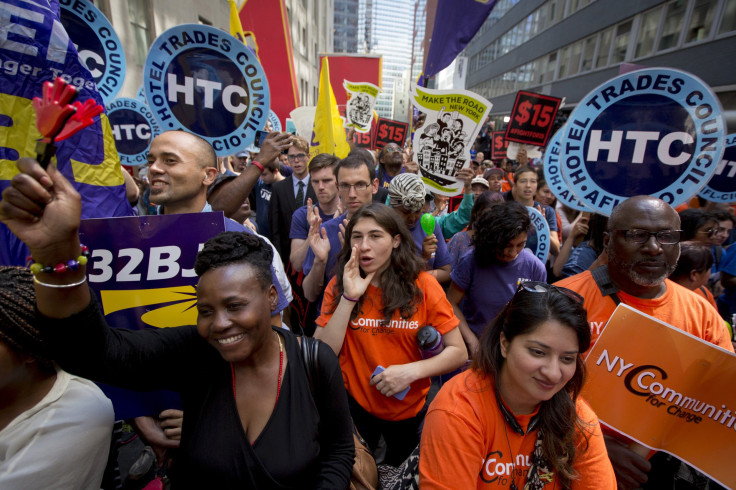Chattanooga Minimum Wage Increase? Tennessee City May Be Next To Hike Minimum Wage Standards

The city of Chattanooga, Tennessee, is joining a growing number of U.S. cities looking to increase its minimum wage above the national level. City Councilman Moses Freeman wants to sponsor legislation to establish a minimum-wage standard for all workers in the city, but state law may block the city from doing it, the Times Free Press of Chattanooga reported.
"I think it's time that we look into it,” Freeman said, according to the Times Free Press. “We are not getting any leadership at the state or federal levels.”
All employees in the city get paid at least $7.25 an hour meeting federal standards since Tennessee doesn’t have a minimum-wage standard. Freeman said he wants to introduce legislation in the next couple weeks but doesn’t know what figure to use. Even though Freeman said he wanted to introduce legislation because the state hasn't taken the initiative, the state Legislature passed a law in 2013 restricting local municipalities from establishing a minimum-wage standard above that of federal or state limits, the Times Free Press reported.
By May, 23 cities had passed laws that increased their minimum-wage levels above the national standard since 2003, with 12 cities passing minimum-wage increases in 2014, according to the National Employment Law Project. In 2003, only two cities had local minimum-wage standards.
Many of these cities have increased their minimum-wage standard to $15 an hour after nationwide protests by workers put minimum-wage increases on the minds of more Americans, Time reported. This was sparked about three years ago by a 200-person walkout of fast-food workers demanding higher pay in New York City.
To my deeply educated Freinds, what's your opinion on this? I think it's a really bad idea for a town that... http://t.co/wyeZwe0CTn
— Thomas Morgan (@ThomasMorganREI) September 8, 2015These protests have not been ignored, either. The Democratic Party has embraced the $15-an-hour wage. But some of the increases that have been adopted in recent years won’t take effect for a while. While San Francisco workers rejoiced at a $15-per-hour wage floor, they won’t see the city transition to the increases until 2018. Seattle’s $15-an-hour minimum wage might not take effect until 2019.
© Copyright IBTimes 2024. All rights reserved.











